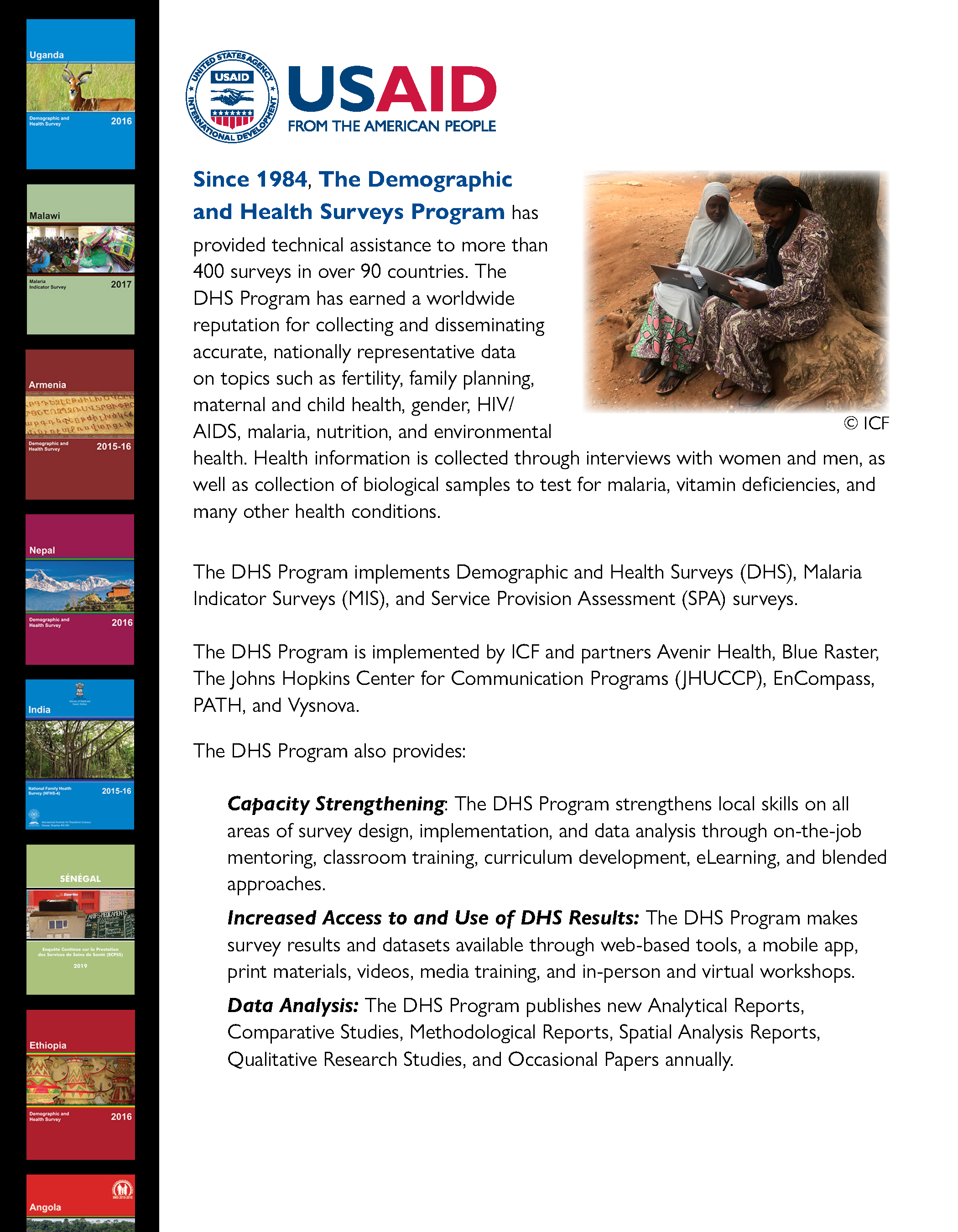Press Releases
New Demographic and Health Surveys' Questionnaires Released
The USAID-funded Demographic and Health Surveys (DHS)
Program has revised and updated its model questionnaires to meet emerging
program and health needs in developing countries. A major source of public health data
worldwide, The DHS Program has provided technical assistance for more than 300
surveys in over 90 countries. The DHS
questionnaires—household, woman's, man's, and biomarkers —are revised every
five years to ensure that the data collected are most up-to-date and useful for
countries. For the current revision, The
DHS Program solicited feedback on revising the questionnaires through an online
portal on the DHS Users Forum; more than 300 key stakeholders from 80 plus
organizations worldwide responded. The
new questionnaires, available on The DHS Program's website (www.dhsprogram.com), will be used in all
upcoming surveys starting with Zimbabwe, Burundi, and South Africa.Reflecting the growing use of mobile technology in
developing countries, the revised questionnaires now include information on
ownership of mobile telephones, whether women have received voice or text
messages about family planning on a mobile phone, ownership of computers, and
use of the internet. The Woman's
Questionnaire also includes new questions on women's agency such as use of
mobile phones for financial transactions, whether a woman has her own account
in a bank or other financial institution, and whether women own or co-own a
house or land for which their name is on a deed or title.
DHS surveys are designed to help countries monitor
population trends and patterns in health practices and evaluate ongoing
programs. To this end, DHS collects,
analyzes, and disseminates accurate and representative data on population,
health, HIV, and nutrition worldwide. The revised questionnaires will collect additional
new data on issues vital to health programs including where households acquired
mosquito nets, condom brands used, use of micronutrient supplements for
children, and knowledge and use of HIV self-test kits. The Man's questionnaire has substantially
expanded the questions on tobacco use to assess the health implications for
individuals and families and to harmonize questions with the Global Adult
Tobacco Survey. To address the growing
use of Caesarean Sections, the DHS will now collect information on whether
these operations were planned or carried out on an emergency basis.
In addition to the model questionnaires used in every
country, The DHS Program also provides separate modules which countries can use
as needed. Current modules include domestic violence, female genital cutting,
maternal mortality, fistula, and out-of-pocket health expenditures. The DHS
Program will develop new modules on newborn care, non-communicable diseases and
injuries, disabilities, and male circumcision among children.
USAID is providing funding for the seventh round of The Demographic
and Health Surveys Program to ICF International and partners from 2013-2018.
For more information about the revised questionnaires, contact: Kia Reinis (kia.reinis@icfi.com)
For
information about The DHS Program, visit our website: www.dhsprogram.com
